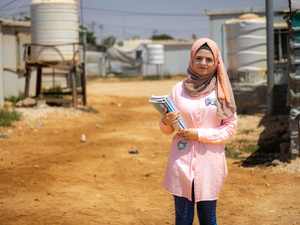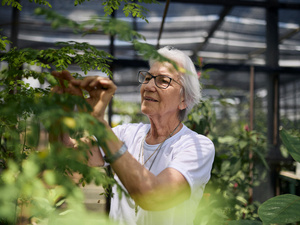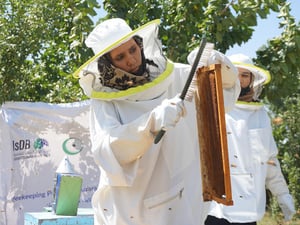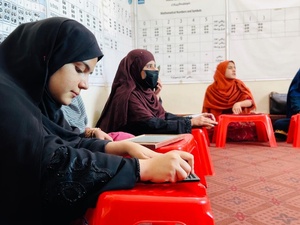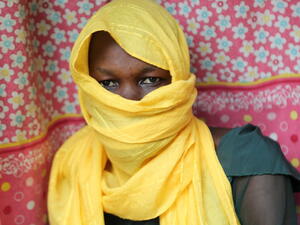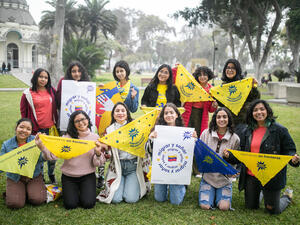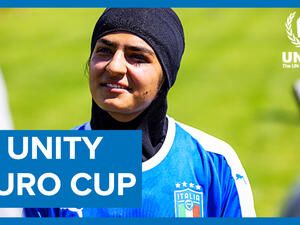Feature: UNHCR, refugees work together to prevent rape
Feature: UNHCR, refugees work together to prevent rape
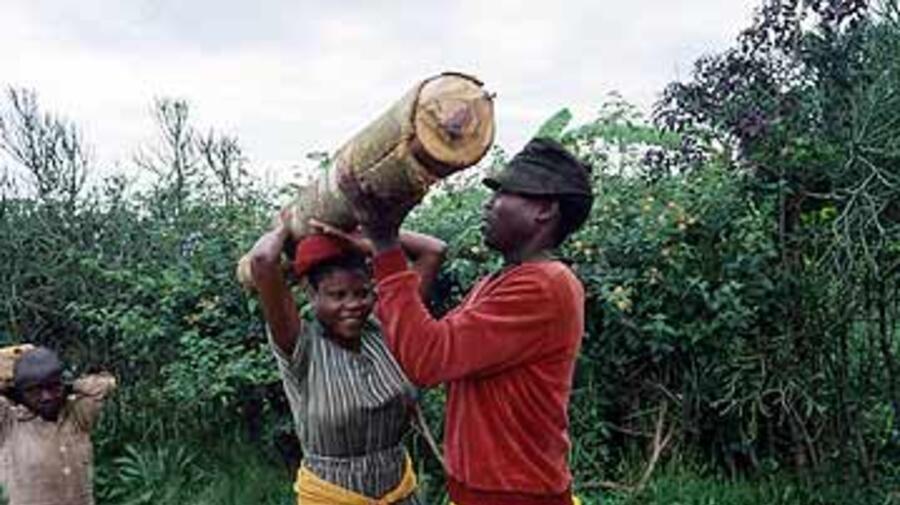
Firewood distributed in camps like Burundi's Ruvumo camp will need to be smaller so that refugee women do not seek alternatives outside the camp, where they risk being attacked.
CISHEMEYE TRANSIT CAMP, Burundi (UNHCR) - Françoise, an 18-year-old Congolese refugee, coos over the baby girl she holds in her lap. "I love my baby very much," she tells a visitor.
The unusual clarification is necessary, because her tiny daughter is the product of a gang rape Françoise suffered last year while collecting firewood with her friends near Cishemeye temporary refugee camp in the hills of north-western Burundi. Spread over two villages near Cibitoke, the camp is home to some 9,000 Congolese refugees from south Kivu in eastern Democratic Republic of the Congo.
Françoise recalls bending over a spring to drink water when six men burst out of the bush. "My friends did not even have time to warn me, but just ran away," she recounts. "When I stood up, it was too late to run."
She counts herself fortunate that her parents accepted her and her baby, and she fervently hopes to go back to school. "I love my baby, and I never thought of having an abortion," she repeats.
Unfortunately, Françoise is not unique among the girls and women in Cishemeye. Having already been exposed to rape by combatants during their flight from eastern Congo, refugee girls and women sometimes face the same danger inside their country of asylum.
UNHCR in Burundi is working together with Congolese refugees to combat rape, and to find innovative ways of providing comfort to the rape victims.
One of the most imaginative approaches has been the appointment of 72 older refugee women as "mères volontaires" (volunteer mothers) who provide maternal warmth and special care to rape victims. These "mothers" have also been able to identify and help rape victims, who otherwise would not have been able to break the silence of shame to admit what had happened to them.
In addition to "maternal" care, UNHCR provides medical care for rape victims, including tests for HIV and sexually-transmitted diseases. "A big step forward is that we now have PEP (post exposure prophylaxis) kits with medicines that can be administered within 72 hours to protect the victims against AIDS," says Leonie Nyakageni, a UNHCR community service assistant.
In addition, a group of young men and women - called camp community assistants - has been trained by UNHCR to fight the spread of HIV/AIDS and sexually transmitted diseases, and also help to eradicate sexual and gender-based violence.
One of the biggest achievements of the "mères volontaires" and the community assistants has been cutting the number of rapes by convincing young women not to make unnecessary trips outside the camp.
Young girls used to leave the camp (located an hour's drive north-west of Bujumbura, the Burundian capital) and trek to hillside plantations to pluck the cassava leaves that are a staple of Congolese cooking.
"It is on that winding path leading to the valley that young refugee girls have been raped by people they identified as shepherds," says Jeanne Ndayisenga, a social assistant working in the camp.
Elisabeth, a 16-year-old refugee girl, was raped as she was going to collect cassava leaves with her friends early one morning. "Suddenly we were caught by six men," she recalls. Now she's relieved to have escaped without becoming pregnant or contracting a sexually-transmitted disease.
Cassava leaves are no longer on the menu inside the camp. The "mères volontaires" and social workers managed to convince refugee girls they were taking enormous risks for something they could easily live without.
Refugees complained that another reason young girls had to venture outside the camp - searching for small pieces of firewood - was because the logs distributed in the camp were too big to split. UNHCR responded by arranging deliveries of smaller pieces of wood. Mills have also been installed in the camps so that women do not have to go outside to grind their grain, says Nyakageni.
The addition of women to the camp security force is yet another step the refugee women say makes them feel safer and more comfortable.
Simiri Rwasha, a 31-year-old Congolese refugee and one of the "mothers", is leading a group of women who have started to identify trustworthy males in the camps to serve alongside the social assistant in the camp as "pères volontaires". She says it's vital to include men in the fight to prevent rape.
"I am proud of the achievements we have reached so far in reducing sexual and gender-based violence in the camp," Rwasha says, "but we still have a long way to go to get it completely eradicated. This should be a collective effort including males."
By Bernard Ntwari in Cishemeye, Burundi

